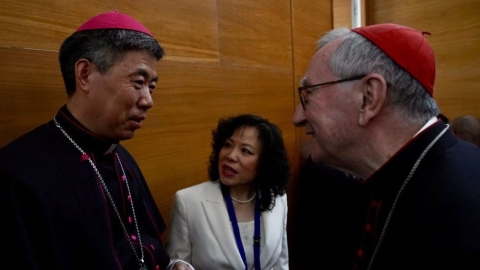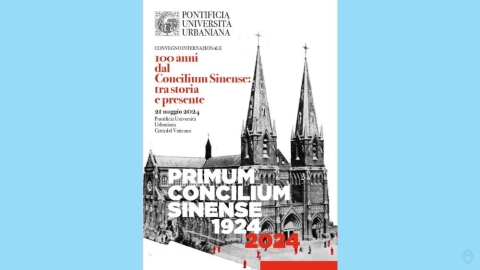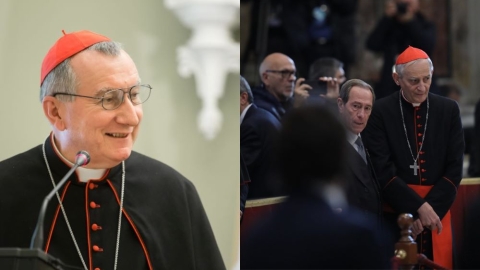Synod: Cardinal Schönborn Thinks the Pope Can Change Doctrine

Cardinal Christoph Schönborn
Speaking to journalists, Cardinal Christoph Schönborn, Archbishop of Vienna, Austria, stated that a possible change in the official doctrine of the Church on homosexual relations is the sole responsibility of the Pope.
Cardinal-Archbishop Schönborn said that, until now, there had been only one valid modification of the Catechism of the Catholic Church since 1992. In 2018, Pope Francis declared the death penalty “inadmissible.” Whether there will be further changes depends solely on the Pope, said the Austrian cardinal, who helped write the Catechism.
On the issue of homosexuality and sin, he noted that there is a gap between the objective order and the subjective level of the individual human being. The Church must respect and accompany each human being with their limits and their history. The Synod had a lot of discussions about how the Catholic Church should treat people in same-sex relationships.
Several members of the Synod called for a change on this point. The archbishop of Vienna stressed that the doctrine of the Church is immutable, but the understanding and presentation of the Faith evolves and deepens. The cardinal appears to believe that a radical change in doctrine is merely a simple evolution or deepening. And so, if the Church has taught one thing for centuries and now teaches the opposite, the faithful must accept it.
The Case of the Death Penalty
On August 1, 2018, a papal rescript modified the wording of No. 2267 of the Catechism of the Catholic Church “on the death penalty.” The new wording first recognizes that “for a long time, the use of the death penalty on the part of the legitimate authority… was considered as a response adapted to the gravity of certain offenses… for the protection of the common good.”
But, highlighting the new awareness “that the person does not lose his dignity, even after having committed very serious crimes,” a “new understanding of the meaning of criminal sanctions on the part of the State,” of “more effective detention systems,” the Church now teaches “that the death penalty is unacceptable” and is committed “to its abolition everywhere in the world.”
Whether or not a state uses the death penalty in its legal arsenal is one thing. But claiming that the death penalty is unacceptable because of human dignity is another. This position creates a very grave confusion between ontological dignity, based on the humanity of the subject, and moral dignity, based on their actions.
The first is certainly unacceptable. A man remains a man no matter what he does, but that is not upon which a judgment is based, otherwise it would be impossible to condemn anyone. A man is judged by his actions, and it is because he has lost his moral dignity – by murder for example – that he can receive the supreme punishment according to the law of the country and the decision of the judge.
Rewards are also based on moral dignity. When a subject acts well, even very well, he is encouraged, praised, and rewarded.
The Case of Homosexuality
To claim that the Pope could change the doctrine on homosexuality, furthermore using the comparison with the death penalty, is pure heresy. This doctrine is immutable, and it would be directly opposed to the sources of Revelation, both to Holy Scripture, which admits of no ambiguity on this subject, as well as to Tradition.
Catholic doctrine, in the points which are fixed dogmatically or morally, is not a fabric that can be changed according to fashion or the spirit of the times: it imposes itself on everyone, everywhere, and always. This is also what Archbishop Stanislaw Gadecki, president of the Polish Episcopal Conference, recalled at the Synod on October 26.
This is one of the salient points of the doctrine on papal infallibility of the First Vatican Council: “For the Holy Spirit was promised to the successors of Peter so that they might, by his revelation, make known some new doctrine, but that, by his assistance, they might religiously guard and faithfully expound the Revelation or deposit of faith transmitted by the Apostles.”
To claim, as Cardinal Schönborn does, that the Pope could change an immutable doctrine is to directly attack the Catholic Faith expressed by Vatican I.
(Sources : Katolisch/InfoCatolica – FSSPX.Actualités)
Illustration : Th1979, CC BY-SA 3.0, via Wikimedia Commons





